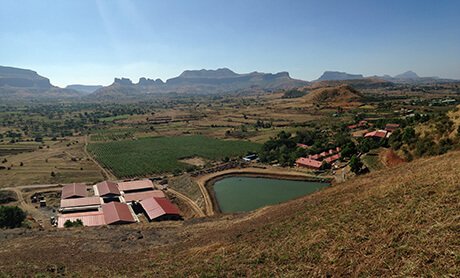To bear a child is undeniably the ultimate dream of the majority of women. It is an almost divine fulfilment that she hopes to attain through this act of procreation. Fear and apprehensions often cloud the mind, the moment pregnancy is confirmed. Will I be able to take this responsibility? Will it be a male or a female? will it be a healthy child? and so on. Child birth is surely the greatest act performed by women. It can be a great emotional experience. The physical and psychological aspects can’t be separated. For most of women labour is a time of apprehension of fear and agony. But with a proper antenatal preparation the majority of women can have and labour that is easy and painless or almost painless and she can actually enjoy the labour and experience a sense of fulfilment.
In the years between the puberty and pregnancy the girl gathers information from many sources : from her schoolmates, from her elder sisters. She overhear the gossip about pregnancies and births. She reads about the subject in news papers and magazines. She watches television. The information is absorbed by her brain and that conditions her mind. The information may be favorable, description of happy and normal birth, but on the other hand it may be of tragedies, of sickness in pregnancy, of a long difficult labours, of still births and deaths and fetal abnormalities and above all, of pain. The word 'labour' itself conveys an impression of unpleasantness. It's a result of her experience and environment during years before her pregnancy, during her antenated period and even during her labour. Patient may be conditioned favorably or unfavorably. If unfavorably, at the contraction of the uterus result will be pain and difficulty. If patient has a pain in labour then fear, apprehension and tension appear which result in release of adrenalin, leading to ischaemia and spasm of the uterus which results in more intense pain, and ultimately prevent desired progress in a process of labour. The end result is long and painful labour. 'Accept life as it is.' Put in your best efforts wherever it is possible and then let your positive spirits overtake you. Yoga always emphasizes this. It is the mind which makes or breaks a situation. The essence of harmoniously handling a glorious pregnancy lies in the ability to gain complete control over the mind, then the body follows willingly.
During last few decades, the research in yoga has proved beyond doubts, that yoga helps to prevent and cure many chronic ailments. Yogic practices integrate the body, mind and spirit. They bring harmony, develop a restful and positive attitude towards life. This comprehensive programme of yogic practices designed for pregnant women will help, them to have correct posture flexibility of spine improve their breathing capacity, to manage stress. It helps to build immunity, inner strength, improve control over body and emotions. In short it is the best preventive and curative therapy for many ailments that can occur during pregnancy. It will also ensure the baby's healthy growth.
Asanas are specific body poses designed to improve the awareness and muscular flexibility. They also control and regulate breathing process and open the energy channels, thus harmonizing the functioning of body, breath and mind. While selecting asanas a special effort is made to consider the prenominal changes in anatomy, physiology and endocrine systems and the restrictions in physical activities due to pregnancy.
Pranayama is a deciplined yogic breathing practice, in which breathing process in consciously regulated. But it is important to learn a under expert guidance only.
When you are no longer distracted by external stimuli and when your mind is completely controlled and remain effortlessly at one point, that is meditation. To develop such a one pointedness of mind focus your attention on an objects like your own breath, or a flower or a candle flame, or a mantra or any object that can easily be focused upon. If attention gets diverted and it will - do not get discouraged, gently bring your mind. back to your chosen object. You will experience inner silence and peace. Human beings have on in built ability to re-establish physical and mental equilibrium through persistent meditation. Regular practice of meditation will induce deep sense of rejuvenation and relaxation. Pulse rate, Blood pressure and oxygen requirement comes down. Mind becomes more relaxed and receptive and can quickly pick up autosuggestions.
Yoga-nidra is a systematic method of inducing complete physical, mental and emotional relaxation. Usually practiced in Shavasana or sitting position for 20 to 30 min Yoga teacher can guide you through recorded instructions. Listen the instructions and follow them mentally. It is important to remain awake and aware during the practice. A very special feature of Yoga-nidra is 'Sankalpa' which means a 'resolve' The relaxed body and mind are ideal soil for making a resolve. The 'Sankalpa' is affirmation of a statement, short, positive, precise about what you want to achieve. Your statement may be something like autosuggestion They are easy to memorise and recite e.g.
"I am becoming happier, healthier and more relaxed."
"I and my baby are experiencing immense joy happiness"
However these auto suggestions can be recited any time during a day. Repeated recitation of auto suggestions, especially when, your mind is relaxed sinks easily into subconscious mind and direct the conscious mind to transform the positive thought into reality. Best time to repeat autosuggestion is in the morning or at bed time when body and mind are relaxed and receptive. Regular practice of Yoga-nidra helps to create the most favorable conditions for fetal growth and development.
The intensity of pain varies from person to person. The more apprehensive and exitable person, the more is the feeling of pain. If person takes a philosophical and relaxed attitude saying, ''OK, this pain is inevitable, but it is temporary and I can cope up with it.'' With yoga practice and meditation the intensity of pain reduces considerably. Yogic practices during pregnancy prepares the mind and body and take the person to a higher level of mind control.
'Something wonderful is going to happen today'
'I am on a way to experiencing a happy motherhood'
'The power of my mind and body are helping my baby come into this beautiful world.'
'I am fully aware and relaxed.'
Dr. U. S. Dhondye (M.D., D.G.O.)
Phone - +91-9822770727
E-mail - yoga@yogapoint.com or yogapoint108@gmail.com

Yoga Vidya Dham, Kaivalya Nagari,
College Road, Nashik - 422005.
Maharashtra, India.
Phone - +91-9822770727 (for courses in ENGLISH)
+91-253-2318090 (For courses, in HINDI or MARATHI)
(Please call during 9.00 AM to 5 PM Indian Time)
E-mail - yoga@yogapoint.co or yogapoint108@gmail.com
Village Talwade, Trimbak, Nasik
Maharashtra,India.
Phone - +91-9822770727
E-mail - yoga@yogapoint.com or yogapoint108@gmail.com
